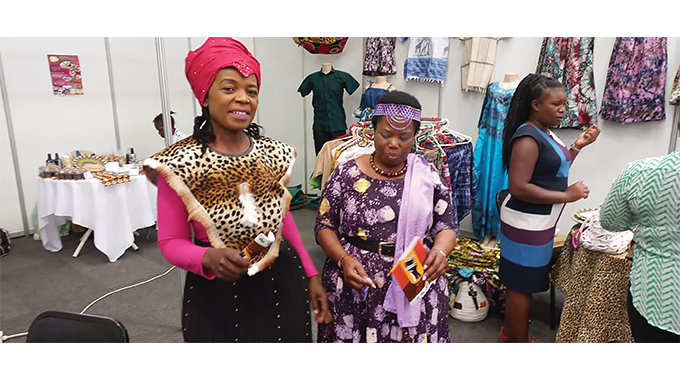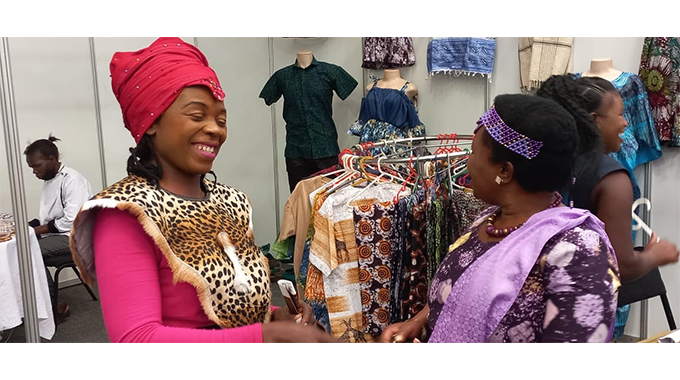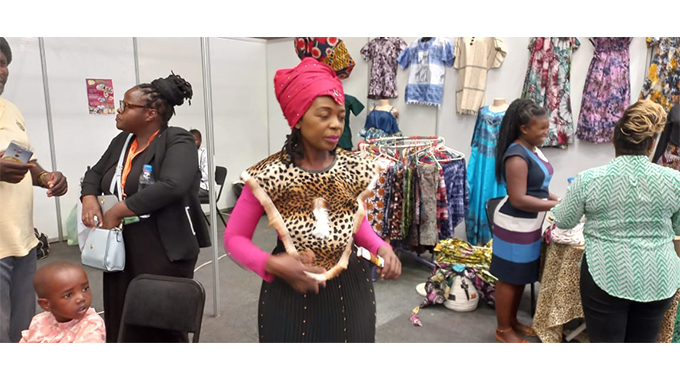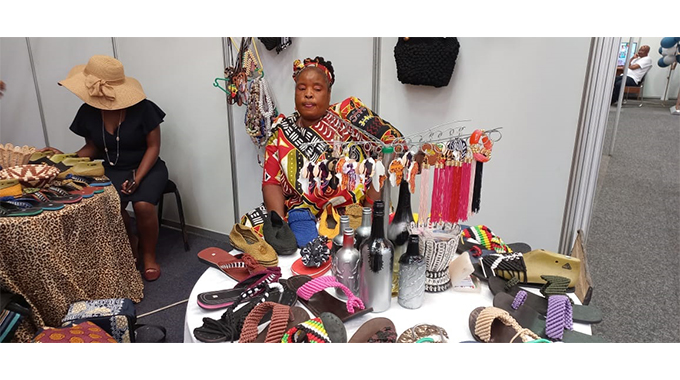The Chronicle

Nqobile Bhebhe, Senior Business Reporter
IMAGINE civil servants turning up to work decked out in amabhetshu, multi-coloured bracelets, barefoot, clutching a leather shield and carrying a leopard skin backpack.
Onlookers would, with no doubt, question the mental state of the people wearing imvunulo.
Imvunulo is the traditional way of dressing of the Zulu and Ndebele people before the arrival of European settlers with modern clothing. Today, imvunulo is mostly associated with traditional ceremonies and celebrations.
Modernisation and the embracing of Western cultural practices have seen the wearing of traditional attire being frowned upon. But this may soon change if a group of women under the banner of the Women in Tourism Zimbabwe (WTZ) get their way. They are challenging scripted stereotypes and are advocating the wearing of traditional gear at work stations.
The call is centred on invoking and reinforcing the concept of national identity and confidence among Zimbabweans.
More importantly, there is a commercial aspect to traditional wear that is not fully exploited, but has immense financial rewards, says WTZ member, Violet Mhute. She believes reclaiming narratives within the fashion industry and recontextualising African heritage and traditions, will uplift indigenous craftsmanship and textile industries that are rapidly disappearing as a consequence of globalisation.
“As women in arts and crafts and working hand-in-hand with our First Lady Dr Auxillia Mnangagwa, we are saying let us be proud of being Zimbabweans. That pride can be exhibited in the manner we dress.
“We appeal to Government policy makers to allow us to wear amabhetshu lembatata zethu to work, civil servants included,” said Mhute on the sidelines of the recently held 15th edition of Sanganai/Hlanganani World Tourism Expo in Bulawayo.
 WIB sanganai
WIB sanganaiIf traditional outfits become recognised office wear like designer wear, Mhute reckons that this could ignite production of various assortments. That could translate to more orders and more income, she added while showing off various wares at the organisation’s exhibition stand.
What gives the women confidence that commercialisation of traditional attire can gain market traction and make business sense in light of the abundance of natural resources that make up the key raw materials for production?
“We call that value addition and commercialising our heritage. In art and crafts, we are utilising our abundant natural resources. For instance, we use peach seeds to create beads and we regard that as commercialising our heritage.

“As we gain more knowledge, we realise that in the past our colonisers were okay with us eating game meat, but they would take animal skins as trophies and create valuable items.
“Now that we are enlightened on the commercial value of animal skin and hides, we now produce various footwear, headgear and other items. We should do away with this notion that a suit and a necktie or stilettos are a symbol of one being smartly dressed and fit for office.”
She added: “Gone are the days when people who are dressed in amabhetshu are regarded as traditional healers and frowned upon. This is our culture. Women should not be shy about even having kinky hair.

“Let’s decolonise our minds and be proud of who we are. We are grateful that the First Lady, Dr Auxillia Mnangagwa is encouraging Zimbabweans not to drift from our cultural beliefs and be rooted in our traditions.
“Of late, there has been a great appreciation of our culture and being Zimbabwean. Our children are now associating themselves as Africans.”
One of the aims of the organisation, which has branches in rural areas, is to facilitate women in tourism to organise and access required financial, technical and marketing services so that they can carry out activities that are both economically viable and environmentally sustainable. This facilitates the raising of the standard of living of women and youths in tourism, the organisation says.
 WIB
WIBHowever, a vast section of Zimbabweans no longer wears these types of clothing on a regular basis. Some choose traditional dress for ceremonial or State occasions, such as Heroes’ Day, Independence Day, and during the Cultural Week which has been transformed into Cultural Month.
Article Source: The Chronicle
